You might already have shifted into overdrive to prepare everything for the wonderful Christmastime, these magnificent, glittering days of neverending joy, unity and harmony. Friends and family will be all around you, and there will be generosity, laughter, love, and peace.
What did you think right now? I heard you:
It’s not like that, is it? Not for everyone.
You’re right. It’s not.
A quarter of the UK population feels Christmas has a negative impact on their mental health. Only one-third say Christmas has never made them experience stress, anxiousness, depression, or loneliness. One in seven parents and carers report they can’t afford Christmas presents for their children this year. Almost one in five feel more lonely over the festive period.
Let’s look closer at these less glittering facts about Christmas and reflect on why – and how we can make Christmas manageable.
The truth about Christmas
In a YouGov survey from 2019, people were asked if the Christmas period had a positive or negative impact on their mental health:
“In general, would you say the Christmas period has a positive or negative impact on your mental health compared to the rest of the year, or is there no difference?”

True, Christmas is a positive or, at least, insignificant thing for the majority of the UK population. But wait a minute. 26% said Christmas has a negative impact. If the survey reflects the experiences of the whole population, we’re talking more than 17 million people here!
The survey also asked:
“Which, if any, of the following has the Christmas period EVER made you feel? (Please select all that apply)”
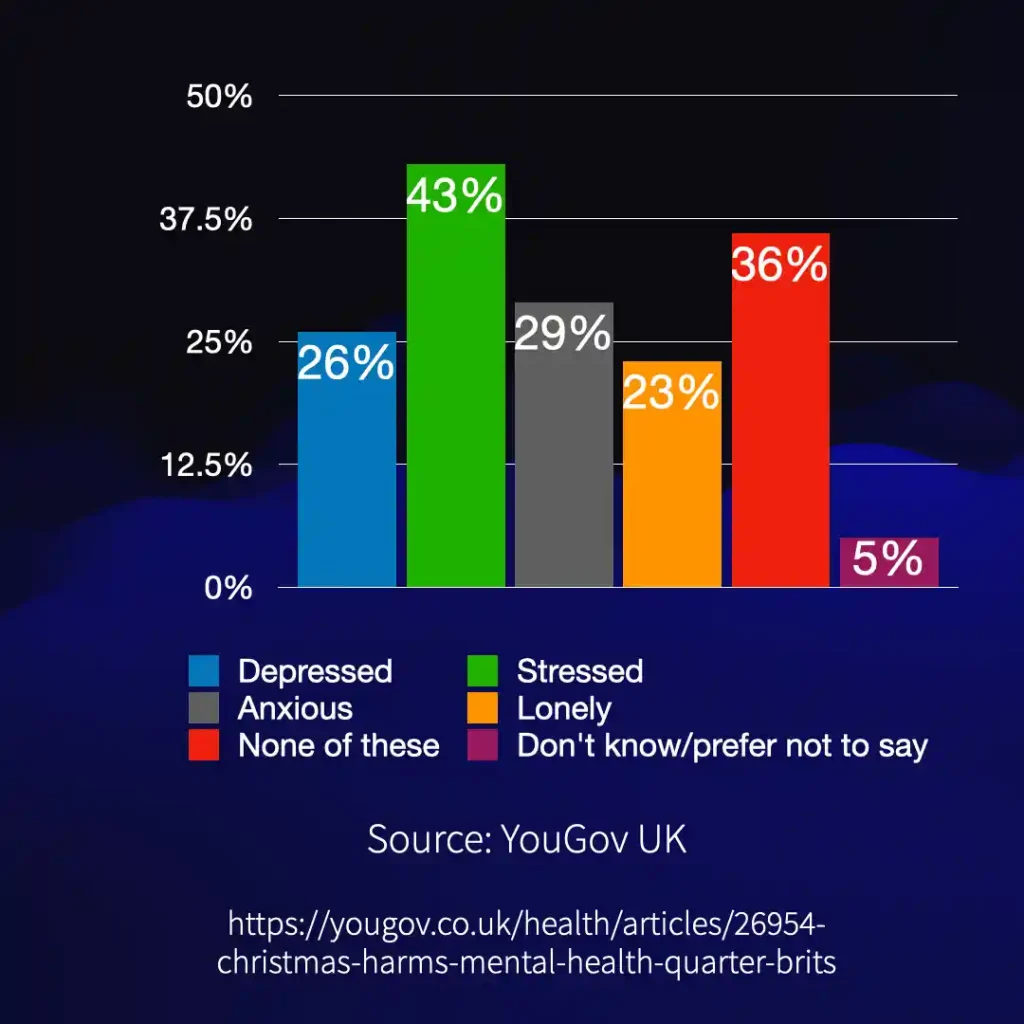
Are you surprised that 43% replied they’ve felt stressed? I’m not, after watching people running around like turbo-charged hamsters in the shopping centres already in mid-November.
But the fact that around one-quarter of the UK population also ticked the boxes for depressed, anxious, and lonely should make us stop and think for a moment.
What’s going on here?
I bet you have a picture in your head of how Christmas should be. But often, that’s not how it is at all.
There are two problems here:
- Why is the gap between should be and is so wide?
- And why does this matter enough to make Christmas worse for many of us than the rest of the year?
The gap between the Christmas utopia and reality
Commercial interests will always strive to keep the gap open and as wide as possible.
The more we feel that what we have isn’t enough and what we do isn’t enough, the more we will try to bridge the gap to what it should be. And the more money we will spend. Therefore, advertising will always need to paint a Christmas picture most of us can’t recreate in real life.
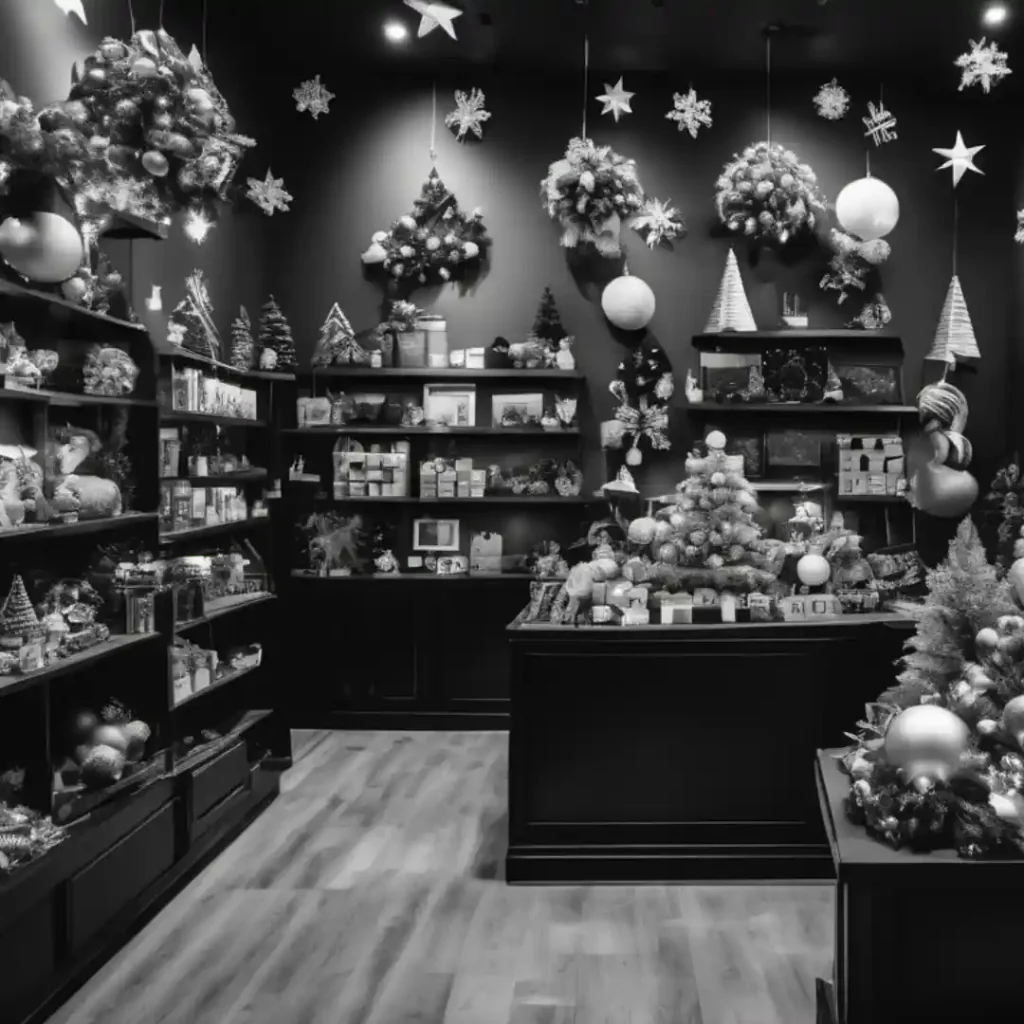
In our age of social media, we give advertisers all the help we can. We post our picture-perfect Christmases so everyone can see. Everyone wants an Insta-friendly Christmas, however ugly it is outside the reach of the mobile camera lens, and no one wants to seem less glorious than their friends and family.
Speaking of family. Family traditions are another gap-driving factor. Because we’ve “always” done Christmas like this, we ”must” continue doing the same things – and preferably do them even better, even though the circumstances have changed.
Even if we never liked those things in the first place.
So, why does it matter to us?
This has much to do with childhood.
Our own childhood. And our children’s childhoods.
Our relationship with Christmas and how Christmas should be is moulded in our minds at an early age, for better or worse. Whether your childhood Christmases were good or bad, you quickly learned that Christmas is essential in people’s lives, even if you learned through disappointment.
How often is a child asked, “Do you look forward to Christmas?” before she can possibly understand what Christmas is? And when she can understand, Christmas doesn’t always fulfil the promises of something to look forward to.
You don’t want your children to feel this, especially if your childhood memories about Christmas aren’t happy.
The shame of scarcity
How terrible it must feel, then, if you’re unable to create anything close to the Christmas utopia for your children. Sadly, that’s the reality for many parents.
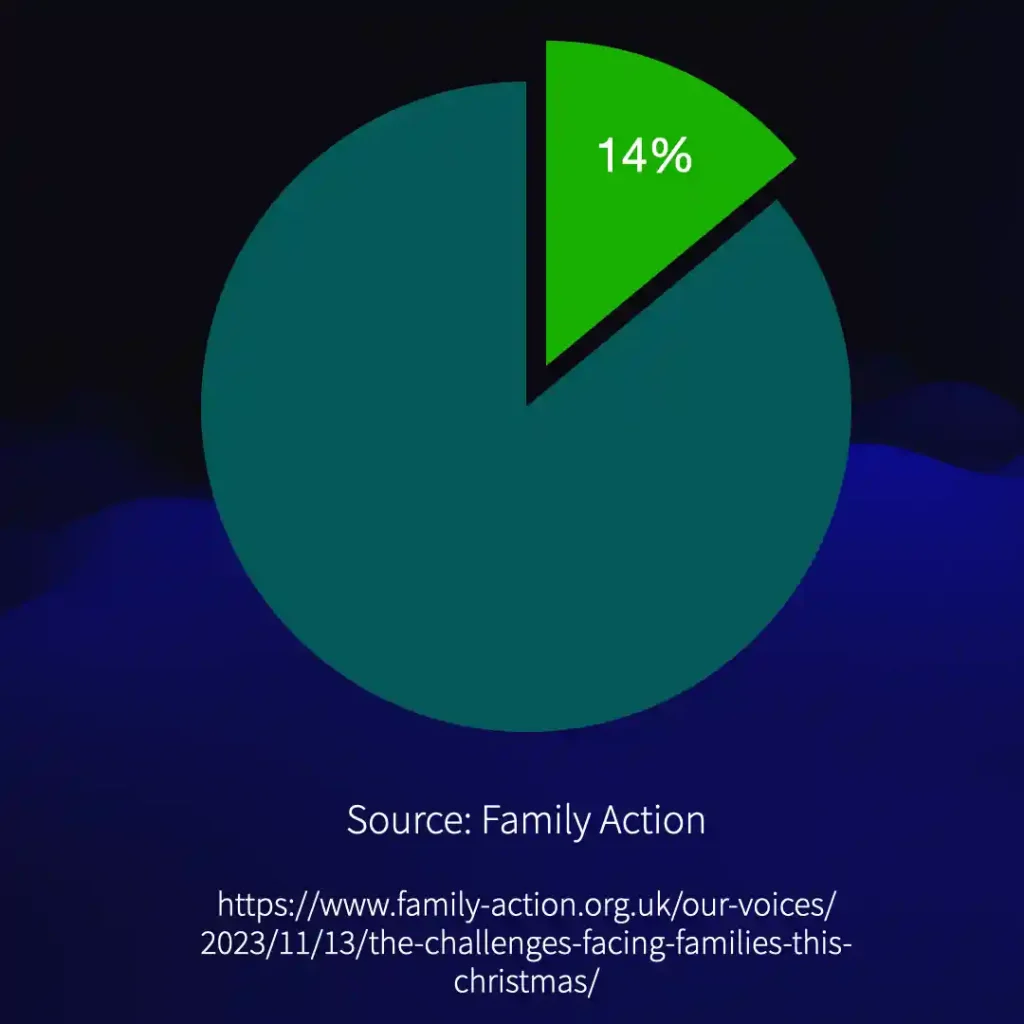
If we, just as an assumption, say that one in seven UK children under the age of 18 are affected by this, two million young ones won’t know what to say when they are asked, “What did you get for Christmas?”
But it’s not all about material things
No, it isn’t. At least, it shouldn’t be.
And, true, there are other reasons why a quarter of the population say the Christmas period has a negative impact on their mental health.
There must be a wide variety of reasons, of course, among so many people. But let me make some guesses based on my own experience.
The martial law of Christmas
Christmas represents a state of emergency wherein your everyday life stops and your regular routines and chores are suspended.
For some people, this full stop can be problematic. If you have mental health struggles beforehand, the absence of your everyday life’s distractions can be unwelcome. It’s demanding to keep troubling thoughts away when you can’t keep yourself busy with work, school runs, and the children’s football training.
Furthermore, challenging relationships tend to get more difficult at Christmastime. Whether it’s about your slightly narcissistic partner, rebellious teenage daughter, or rude Uncle Sam, you suddenly find yourself boxed in with them without any emergency exit. Because you “have to” do as expected. Family traditions, you know.

Finding comfort in the bottle
No wonder alcohol consumption skyrockets at Christmastime.
According to a 2017 article in the Independent, alcohol consumption in the UK increases by 41% during December. A New York Post article from 2018 claims the average American doubles the amount of alcoholic drinks over the holidays compared to any other time of the year.
People don’t get themselves bladdered just because it’s a Christmas tradition and they’re having such a jolly good time. If we enjoy ourselves so much, we shouldn’t need to gin-soak our brains, should we?
Alcohol can bring out the worst in us. According to the Local Government Association, domestic abuse-related crimes represent a higher percentage of all crimes in December than the rest of the year.
And even if it doesn’t go that far, remember that children quickly notice any change in their parents’ behaviour in the first place. Drunken parents and other relatives can be a scary thing for children. This is probably one of the main reasons many people acquire a problematic relationship with Christmas early on.
Loneliness at Christmastime
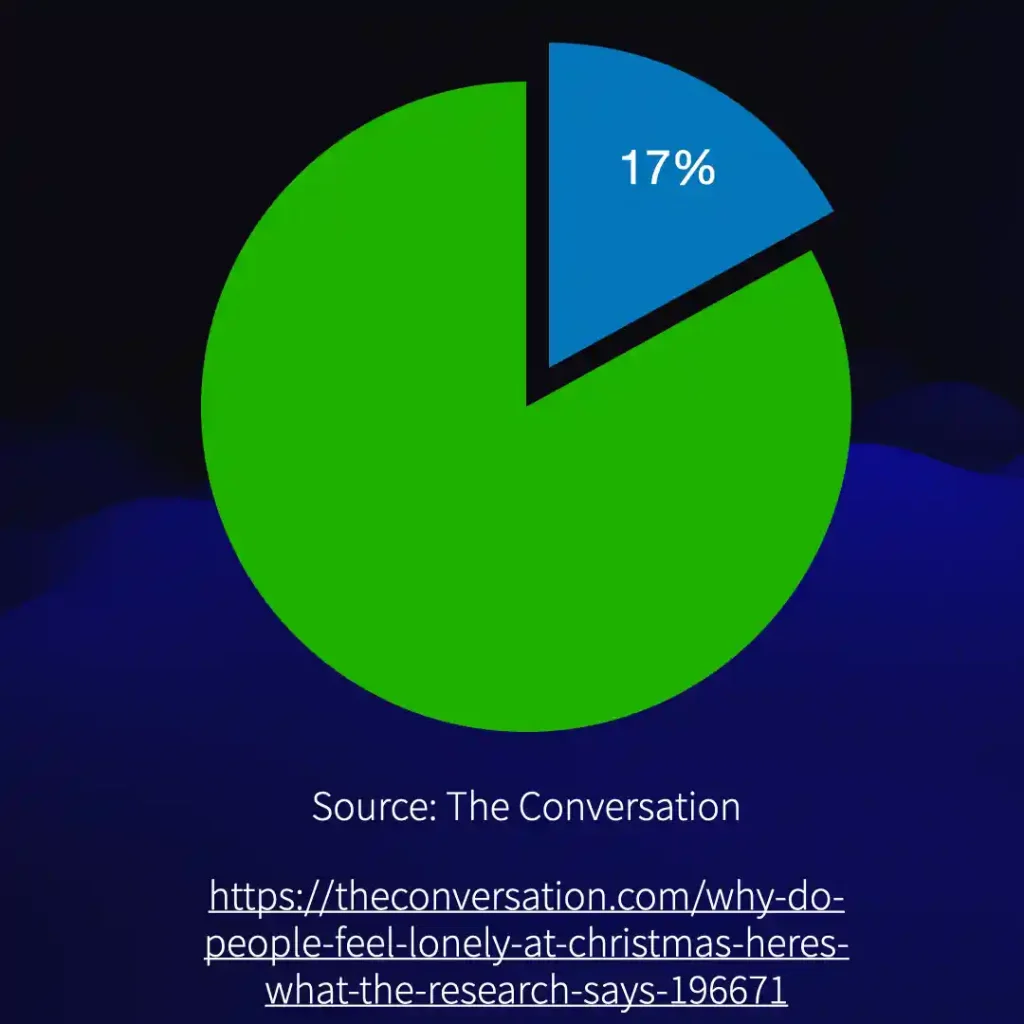
Social isolation and grief after losing dear ones make Christmas particularly difficult for many people. Of course, when we are supposed to spend time together at Christmastime, it’s hard when we can’t.
But remember that feeling lonely isn’t necessarily the same as being alone. If we don’t feel genuinely connected to the people around us, we can easily feel lonely in the middle of a crowd, even at a Christmas family party.
If you are somehow estranged from your family, if you suffer from depression or anxiety, or if you (like me) are a true introvert, I bet you have already been in this situation. Christmas after Christmas.
And this isn’t something you can easily talk about because you’re not supposed to feel bad among other people, are you? So, the simple solution is to suffer in silence. Feeling there must be something wrong with you, that you are some kind of freak.
What can we do about Christmas?
But you aren’t a freak. We started by stating that one-quarter of the UK population feels Christmas has a negative impact on their mental health. You aren’t the only one, far from it.
But you shouldn’t have to feel this way, and you don’t have to.
We can’t stop the frantic carousel of Christmas commercialism here and now and on our own. But there are two obvious things we can do – and we can start this year:
- Stop putting pressure on each other within our social circles.
- Stop putting pressure on ourselves.
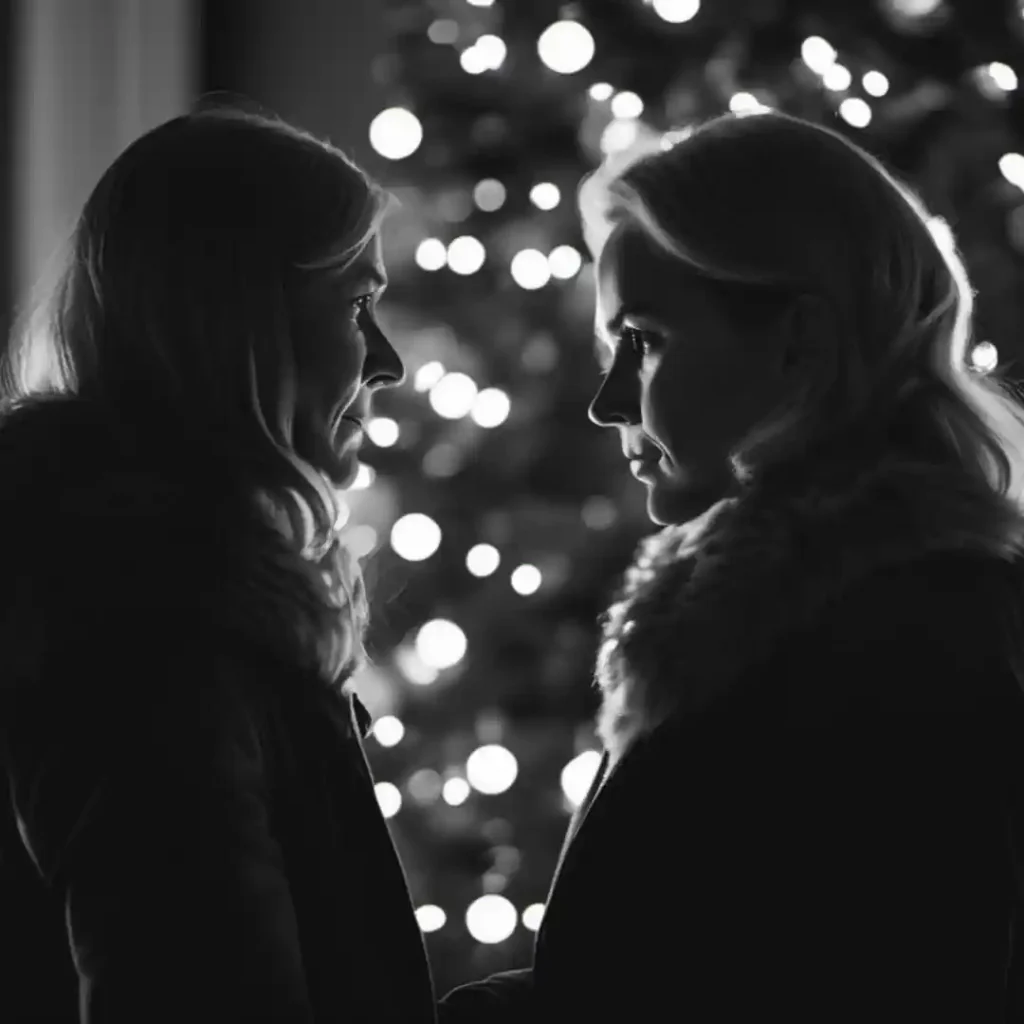
How to look after each other
Start talking. Discuss questions like:
Does everyone have to buy Christmas presents for everyone else?
Perhaps it’s enough to buy presents for the children? Is buying presents for your children’s second cousins and our friends’ children necessary?
Does everyone have to participate in everything?
Do we need a huge Christmas party for the whole extended family? If so, is it OK if family members who don’t like big parties celebrate more quietly on their own? Is it fair that Auntie Vera must cook for 30 people every Christmas Day so that everyone else can enjoy themselves?
Is everything we do really necessary?
Do we really have to decorate our houses until they look like psychedelic funfairs both inside and outside? Do we really have to visit everyone in our extended family and all our friends within the limited number of Christmas days? Do we really have to send Christmas cards to all the 1,763 people we’ve known throughout our lives?
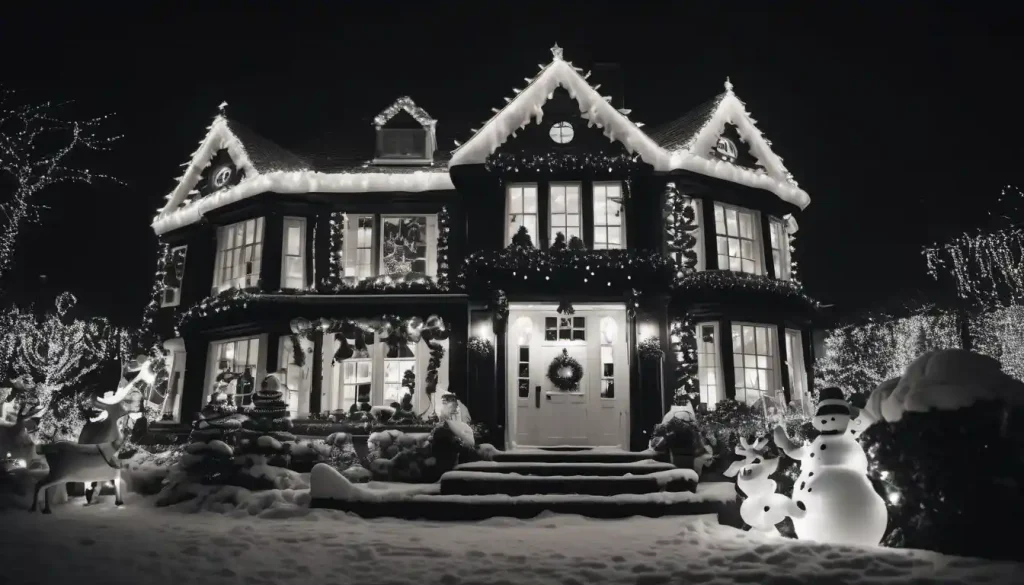
Remember, if you want Christmas to be like this or that just because you want it to be, that’s how you put pressure on people around you. For instance, no one likes to say, “Oh, but I didn’t buy anything for you!”.
If families and friendship circles discuss questions like these openly, much of the pressure will vanish. Please try to be gentle with each other. Respect that other people don’t feel the same way as you and need the same things. And remember, you can’t possibly know everything about all your family and friends.
Perhaps you don’t know Cousin Annie is suffering from anxiety. How does it feel for Annie if you are deeply insulted because she’d rather not come to your Christmas party?
Perhaps your nephew John is struggling financially this year. How does it feel for John, who can hardly afford Christmas presents for his own children, if you hand out expensive presents to him, his wife, their children, all the children’s cousins, and every aunt and uncle?
How to look after yourself
Look after yourself! It’s essential! Because to be honest, everyone else is most likely totally immersed in their own image of Christmas. If Christmas makes you feel stressed, anxious, or low, be responsible for your own well-being. You can try these steps:
Admit Christmas doesn’t make you feel well.
You don’t have to cry it out from the mountain, but you must admit it to yourself. You can’t solve a problem without admitting it exists.
Realise you have the same right as everyone else to feel well.
This is hard, especially if you’re under much family or peer pressure. But it’s true. Even though life is an endless chain of compromises, it shouldn’t be you who gives way all the time. That’s not fair.
What do you need to feel well about Christmas?
Think it through. What do you need? If your childhood Christmases were traumatic, you might feel like skipping it altogether. That’s not easy, though, especially if you have children. But which boundaries do you need to define to make it better?
How do you get there?
If people are used to you giving in, they will expect this to continue. But most people aren’t unreasonable if you can momentarily snap them out of their private Christmas utopia fantasy. People want what they want, but generally, not so much that they want other people to suffer. If they know. Some explanation to the right people might go a long way.

Last words from the Grinch
Some readers who have endured to follow me so far might think I hate Christmas. Not so. Christmas is necessary. People in the Northern Hemisphere have celebrated midwinter, jól, or Christmas (after Christianity came here) for thousands of years.
We need this break at the darkest and coldest time of the year, knowing we’re leaning towards a distant spring and summer from now on.
But it should be a break. It should be nice. For everyone.
So please stop putting pressure on the people around you. Try to be grateful if Cousin Annie visits you on Boxing Day instead of giving her the cold shoulder because she couldn’t face your Christmas Day dinner. Respect other people’s wants and needs. They count just as much as yours.
Try some gentleness and consideration! That’s the Christmas spirit if you ask me.
And please, please be gentle with yourself. Give yourself the Christmas you need.
I wish you all a genuinely happy Christmas.



+ There are no comments
Add yours